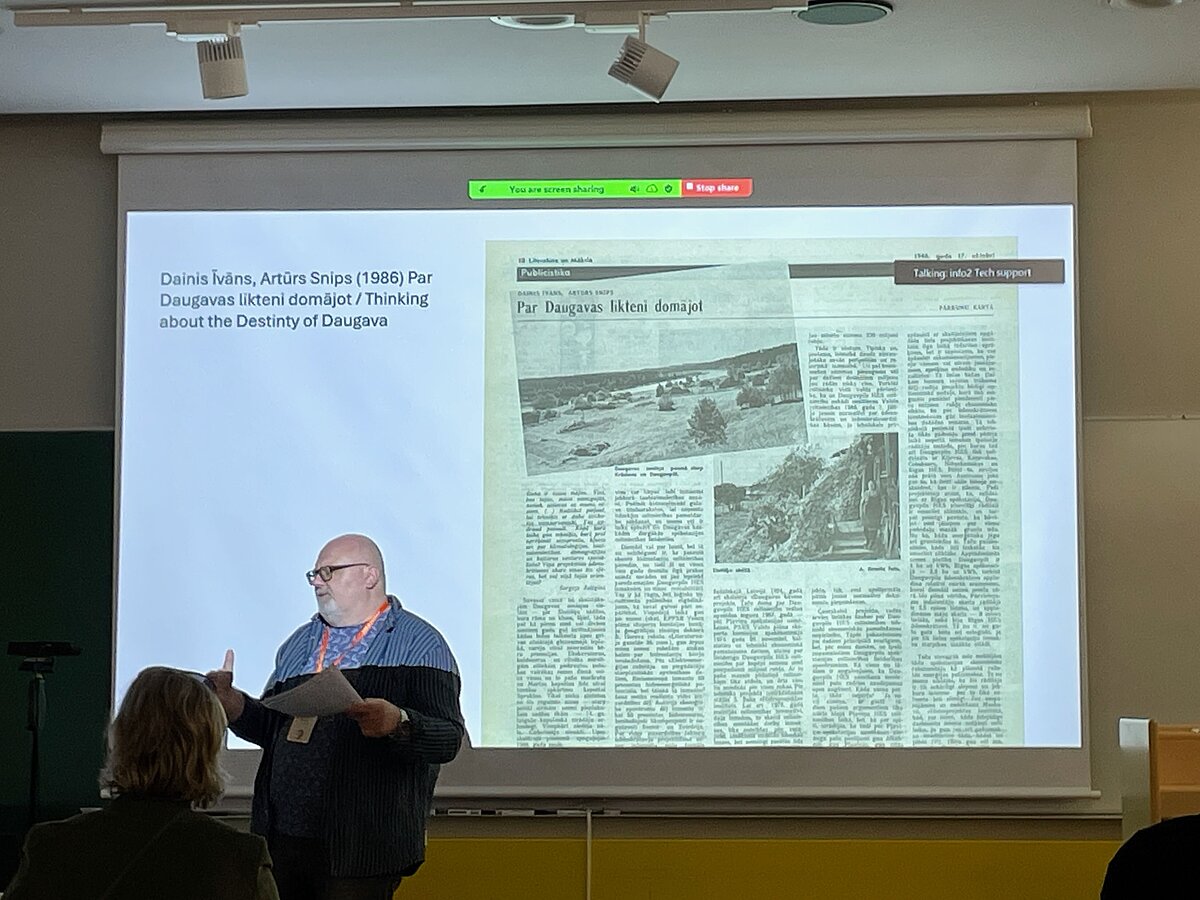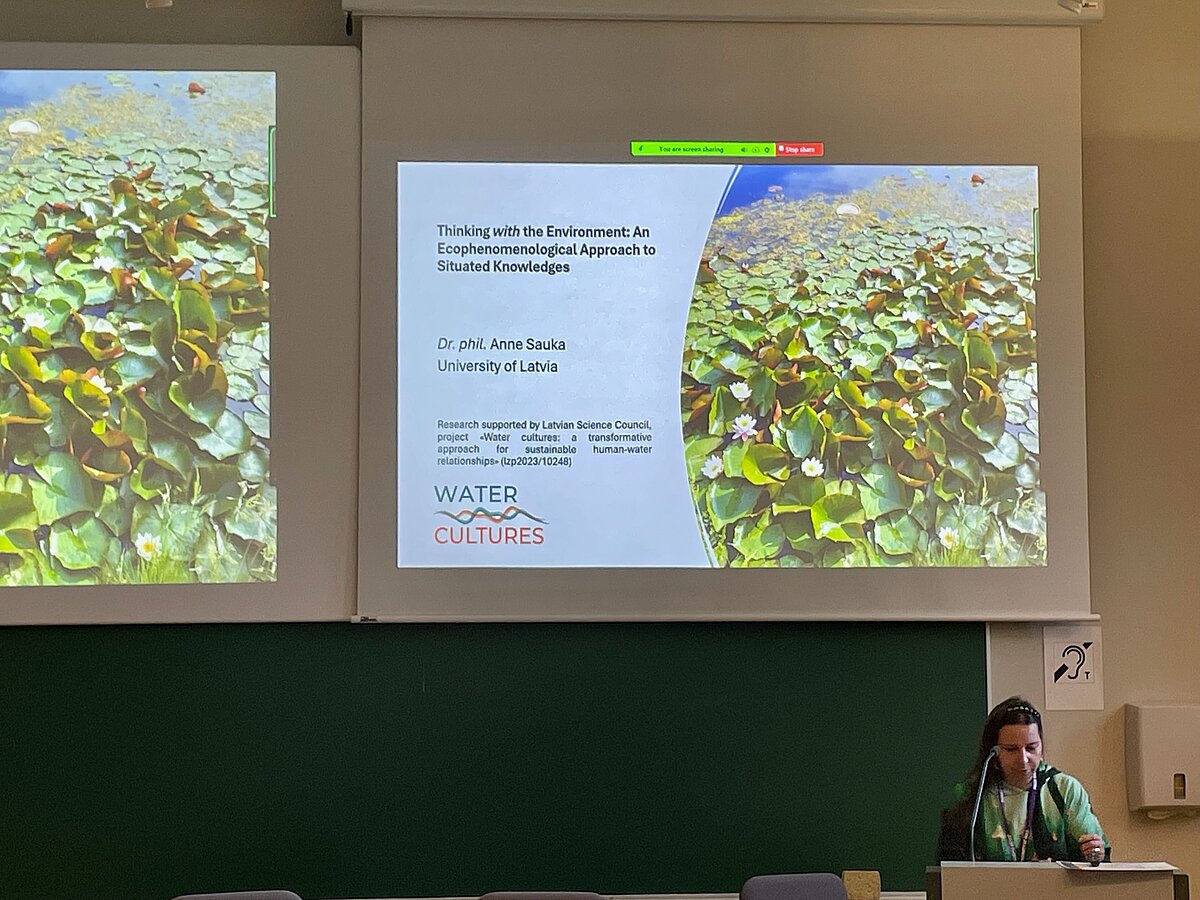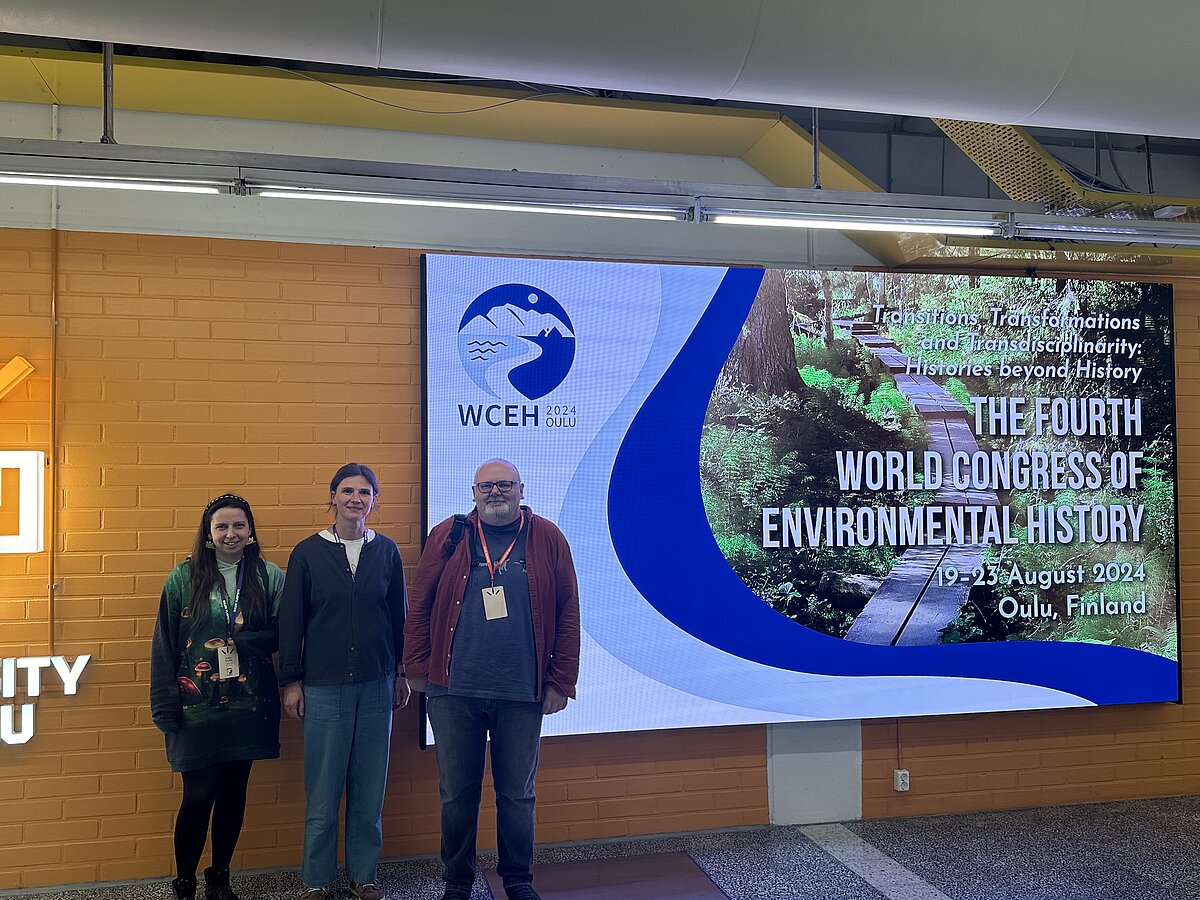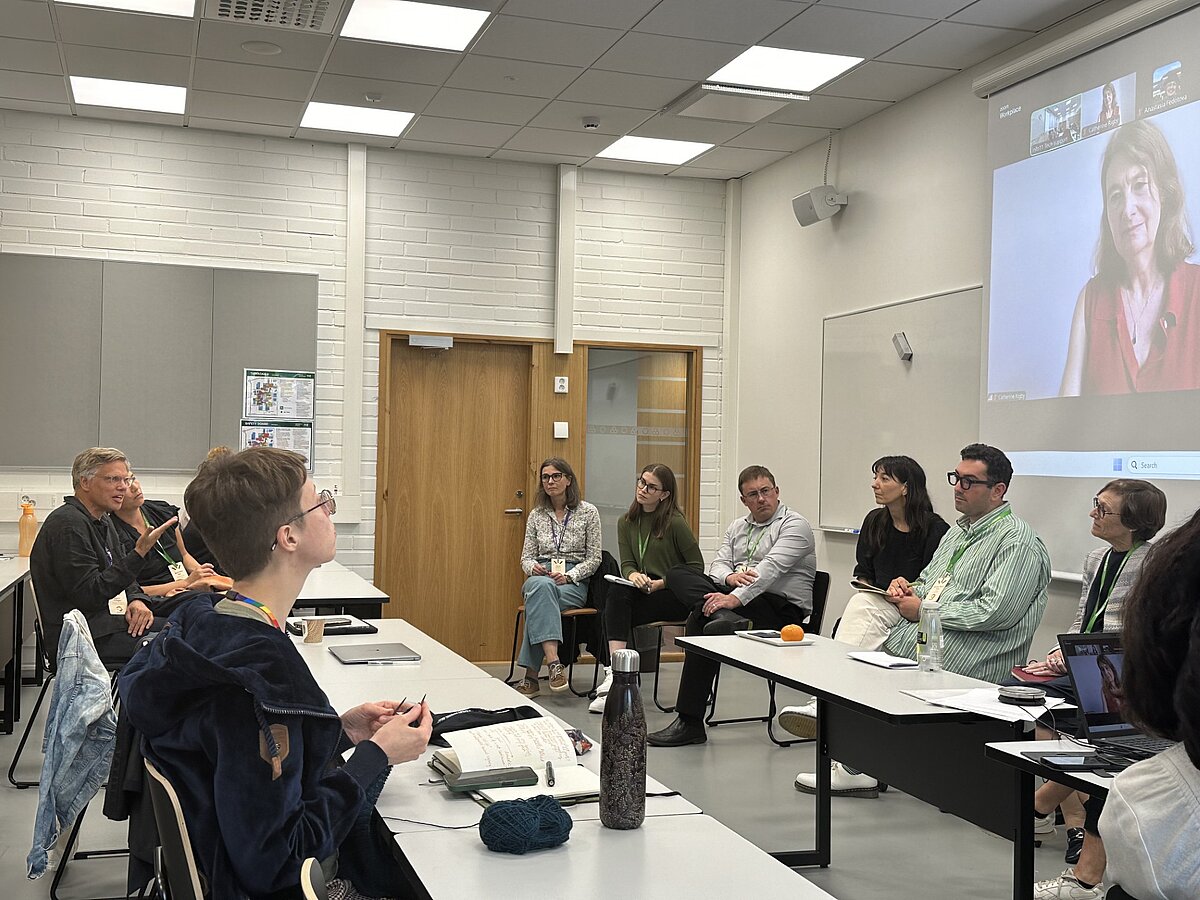
Artis Svece, together with Anita Zariņa, participated in the section on environmental movements in Eastern Europe and presented the paper "Discourses of cleaning and the Latvian popular environmentalism of 1970-1990", which focused on the discourses of cleaning that were important in the Latvian popular noble trees (dižkoki) "liberation" movement and river collective cleanup competitions in the late 1980s.
Anne Sauka participated in the interdisciplinary section "The Environment Around Us: Relational Approaches as Common Ground". In her paper "Thinking with the environment: an ecophenomenological approach to situated knowledges", she analysed human-water relations in Latvian folklore in the context of environmental philosophy and considered the role of alternative narratives of human-nature interactions in shaping a sustainable future. The paper outlined the multiplicity and historical shaping of experience, and offered folklore as an alternative source of solutions for environmental ethics, drawing on David Abrams' ecophenomenological approach.
Anita Zariņa, together with project researcher Ivo Vinogradovs, presented a paper entitled "Caught in the Managerial Ethos: The Transforming Histories of Human-Beaver Relations in Latvia". The presentation focused on the reintroduction of beavers and their discursive significance, which was shaped by political and economic factors during the 20th century. Beaver activity is closely linked to issues of water ecology, management and governance in natural and man-made watercourses, highlighting changing human-water-beaver relations in different socio-ecological contexts and political regimes.
More information about the congress is available here

 CONFERENCE
CONFERENCE

